UK Charts: 2003 Annual Report Round Up
Part One: Impress your friends with your statto-like knowledge of the UK games industry.
Every year we literally fall off our chairs when we settle down to gorge on the stats that ChartTrack and ELSPA produces in their annual software report. Of course, all most of you hear is that game sales are up every year, and 2003 was no exception. In fact, for the first time ever, ChartTrack's 6,500-strong retailer panel broke through the billion pound mark (£1.07bn) in the process of selling 47.86 million items of software. And what's more impressive is that those figures only represent an estimated 85 per cent of the total market, with some huge retailers such as Toys 'R' US not on the panel, as well as a lot of one-man-band Indies.
PS2 power
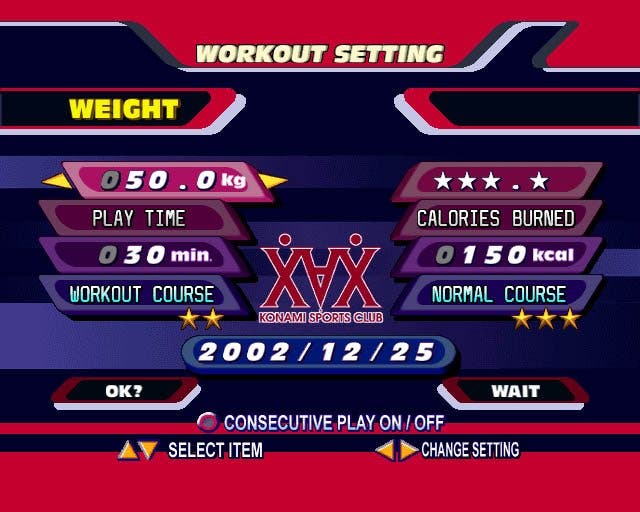
Out of all the software sold, some 38.2 per cent were PlayStation 2 games, representing an eye-bulging £481.5 million or a record-breaking18.29 million units. Although in terms of market share the PS2 hasn't dominated to the same extent as the PSone at its 1998 value peak (which held an unprecedented 44.5 per cent of the value of the whole market), the money generated through the tills is some 53.3 per cent greater than at the same point in the PSone's life-cycle.
It's good news for Sony UK however you look at it, with the 18.29 million units sold on the PS2 in 2003 by far and away its best-ever calendar year for software in the UK, some 89.9 per cent better than at the same point in the PSone's lifecycle and 51.5 per cent better than at the 2000 unit peak of the PSone. Better still for Sony, unit sales of PS2 software were up 40 per cent year on year, and value was up a market growth-busting 16.6 per cent, reflecting the overall price erosion as the format enters its fourth year.
To say it was a good year for Sony would be a gross understatement, with even the ageing and generally ignored PSone software catalogue accounting for a healthy 9.5 per cent of unit sales, 4.6 per cent of the value, with an impressive 4.53 million titles sold across 2003 - more than the Xbox, Cube or GBA. Titles such as Dancing Stage Euromix (111k) and Dancing Stage Party (175k) showed the wisdom of Konami's decision to stick with the format, while Atari's Beyblade (85k) also showed what could be achieved with the right titles.
In total, Sony grabbed 47.7 per cent of the units in 2003 (22.82m) - slightly down on the 48.6 per cent posted in 2002, while Sony's total share of the value of the market hit 49.6 per cent (£486.3m), compared to 51.9 per cent in 2002, although the value was up some 15.4 per cent up on 2003, so Sony won't be complaining too much. 2004 might be a different prospect, however, as the value of the PSone software market peaked in its fourth Christmas in 1998, and 1999 will be remembered for the year that retailers drove the price of PSone games down forever, fighting a price war that forced games below the £30 mark. Some retailers have already adopted this tactic, notably Argos, but the difference this time is that most of the big sellers are EA titles, and the US giant is unlikely to be dictated to by even the most powerful retailers. Could EA inadvertently prolong the long term commerciality of the PS2 with its strength? It certainly won't do it any harm, and Sony could yet see PS2 sales peak yet again in 2004, with publishers behind the format like never before, and an unprecedented installed hardware base already closing in on the six million mark.
Xbox
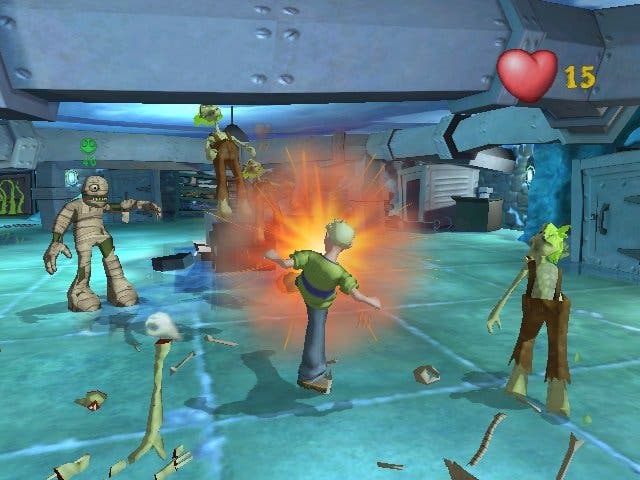
In the light of Sony's stellar achievements, everything else is dwarfed by comparison, but there was plenty to cheer Microsoft in its second year as a console player. Sales of Xbox games hit £111.7 million during 2003, up 78 per cent on its launch year, and grabbed 10.4 per cent of the market compared to 2002's 6.5 per cent - the biggest improvement year on year for any format. Some 3.96 million units sold during the year, a 225 per cent improvement on 2002, accounting for 8.3 per cent of all software sold over the year.
How the machine fares in 2004 depends largely on whether Microsoft decides to reduce the price or not, how much impact its software line-up has, and whether its Live offering proves to be enough of a lure. To date, Microsoft has had problems making its first party offering exciting enough to gamers, with the notable exception of Halo. Of the remaining titles, only Project Gotham Racing 2 and Brute Force sold in anywhere near significant numbers, with the vast majority of its exclusive first party line-up selling in embarrassing sub 10,000 quantities (hands up Grabbed By The Ghoulies, Amped 2, TAO Feng, Crimson Skies, Links, Voodoo Vince etc). Until Microsoft can consistently deliver exclusive triple-A titles it's hard to see how it can close the gap in time for the launch of Xbox 2, when it may conceivably be suffering from the same issues outside of its native US.
Pear shaped for Cube
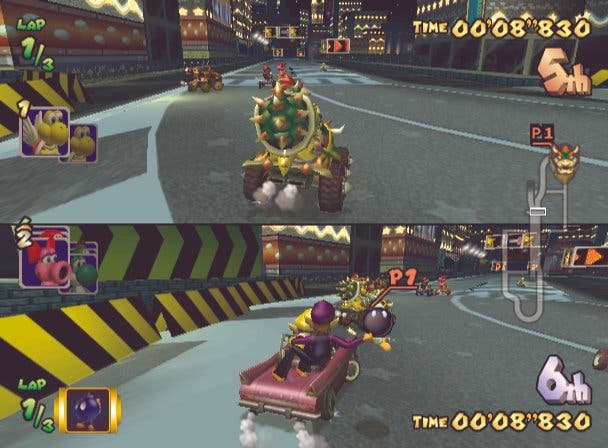
'Not the performance Nintendo would have been looking for' is possibly the most accurate way to look at it. Yes they rose by 26.5 per cent year on year by value, to £64.5 million (6 per cent of market value), but you'd expect that for a console only launched in May 2002. Units wise, sales rose by 63 per cent to 2.32 million, representing 4.8 per cent of all software sold. Perhaps it's pertinent to compare these figures with the N64, which managed to sell £84.8 million worth of software in its second Christmas on about 50 per cent less units. Back in its 1998 peak, the N64 grabbed 12 per cent market share, compared to the Cube's 6 per cent. On the bright side, even in its UK position as the third most popular games console, it's performing significantly better than the lamented Dreamcast, which at best only carved out 5.3 per cent market share back in 2000, despite some of the best games ever released. Sometimes, there's no justice.
Still, despite Nintendo lagging some way behind the Xbox in the UK software and hardware market, it can boast a remarkable attach rate for some of its first party releases. Notably, Mario Kart: Double Dash sold to almost one in three Cube owners, while The Wind Waker managed around the one in four mark - some way ahead of any Xbox exclusive, while even Metroid Prime's sales were comparable with the very best selling Xbox titles. However, sales of many of the other exclusives such as Resident Evil Zero, Rebel Strike, Super Monkey Ball 2 and F-Zero GX were disappointing, while the sales of Viewtiful Joe, P.N.03, Wario World and Billy Hatcher could be considered disastrous.
Where Nintendo goes from here with the format is anyone's guess. The exclusive titles left in its cannon certainly look interesting (Final Fantasy: Crystal Chronicles, for one), but it's hard to see where this year's Wind Waker and Double Dash are coming from, and third party support is scarce to say the least. We expect another price cut by the summer, which will certainly help in its quest to appeal to PS2 owners looking for a second console, but it's looking like a year dominated by budget sales for Nintendo. Maybe Nintendo can reinvent the Cube as a handheld console and revive fortunes, but it's a long shot. [That's right! Beat your little drum for the handheld Cube, Kris! -Tom]
PC plods
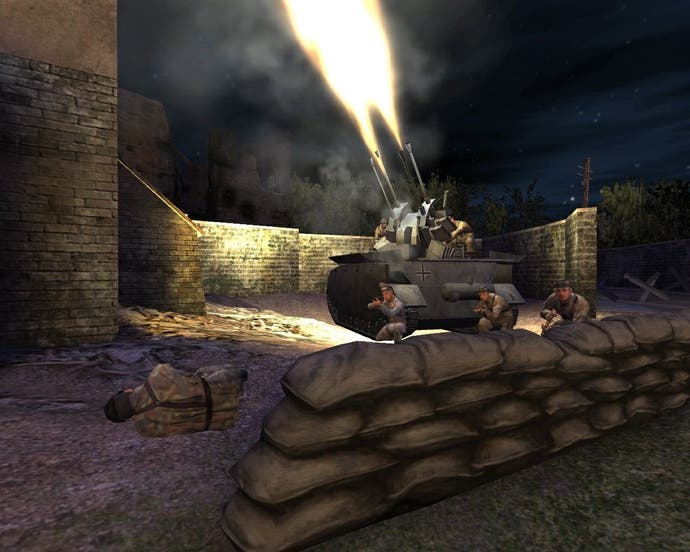
The PC enjoyed another good year, despite the appearance of being a format in decline. Overall PC software sales are up 10.95 per cent by units, and 7.3 per cent by value, so it's by no means a format to be ignored, even if it does appear to be largely propped up by the never-ending [and interminably boring -Tom] Sims franchise, and the usual Championship Manager mania. The headline figures put a gloss on what was a pretty difficult year for most publishers not called EA, with overall software sales for the PC accounting for £286.9 million's worth, or 26.8 per cent, while 15.49 million units sold on the format, or 32.4 per cent of all software. But what ChartTrack's figures don't tell you is that around a third of that is non games software, so wipe off about £100 million or five million units and you're closer to the real figure that we're interested in, which would make the PC Games market closer to an estimated 17 per cent of the value, or about 22 per cent of the units.
CM4 was by far the best selling title with record breaking sales of over 325k, with even its quick-fire season update managing to outsell everything else released on the PC despite essentially being little more than a data update. Of course, every Sims title imaginable did brilliantly, with 100k+ sales across the board, but Activision will be pleased that it managed to interrupt the Sims party with its cinematic Call Of Duty selling almost 100k. Lower down, it was disappointing to see the likes of Hidden & Dangerous 2 sell less than 30k, although Gathering's stablemate Vietcong managed to sell around 50k. What this year's listing proved is that most publishers are steering well clear of these pirate infested waters, and choosing to release only very targeted titles that appeal to a guaranteed audience. This year ought to show a reasonable improvement, but only if the likes of Valve and Id can get their respective acts together.
Handheld heaven
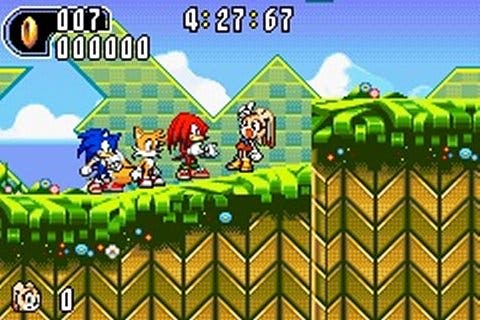
And what of pocket gaming? In many ways it was another fantastic year for Nintendo, with unit sales of GBA software up an impressive 37.7 per cent, and value up 25.5 per cent on the 2002 figures. But despite the fantastic installed base of three million GBAs in the UK, and some heart-warming software sales increases, the relative software market share is still frustratingly low by comparison, with sales of GBA software representing just 6.6 per cent of the total market, by value (£70.4 million), and 6.3 per cent of the unit sales, with 3.03 million games sold over the course of the year. And with the Game Boy Color market finally shrivelling to almost nothing, so Nintendo's combined market share across the two formats has actually remained much the same as it was last year - around 7.5 per cent - and some way short of its 13.1 per cent peak of 2001 when the GBA had been launched and GBC was still riding high on the Pokemon phenomenon.
This year, Pokemon Ruby and Sapphire were supposed to reignite the brand, but sales - although impressive by most game's standards and Nintendo's best-sellers of the year by some margin - were still over 50 per cent down on the most recent incarnations in the series, and a third of what they were in their heyday. Elsewhere, Yu-Gi-Oh Worldwide Edition scored Konami another sleeper success, selling over 100k, followed by THQ's Finding Nemo, while old brands revived was the safest route to success, with The Legend of Zelda: A Link To The Past/The Four Swords selling just shy of 90k, as did Sega's Sonic Advance 2 (worryingly, by far Sega's biggest seller of another low-selling year for the fallen giant), while Crash Bandicoot 2: N-Tranced sold over 70k to once again demonstrate good commercial sense by Vivendi. For once, EA didn't have quite the all-conquering success on the format. Although Return Of The King fared strongly, FIFA 2004 sold just 20k, despite the huge marketing muscle and retail presence.
The N-Gage figures, meanwhile, might be a little misleading given ChartTrack's lack of mobile phone shop tracking, but the format's biggest seller by a distance was Sonic N, followed by Tomb Raider and Tony Hawk's, with sales of between 2 and 3,000 for the top selling titles, and much less for the rest. Anecdotal evidence suggest that ChartTrack figures account for one in three N-Gage sales, so if we apply the same logic to the software, then the real figures are closer to the seven to 10 thousand mark for the UK in the absence of official figures from Nokia.
To be continued...
And that's it for part one of our annual round up of the UK charts. We'll return with a closer look at the best and worst sellers within each format, finishing up with an inspection of the publishers that are selling them.

